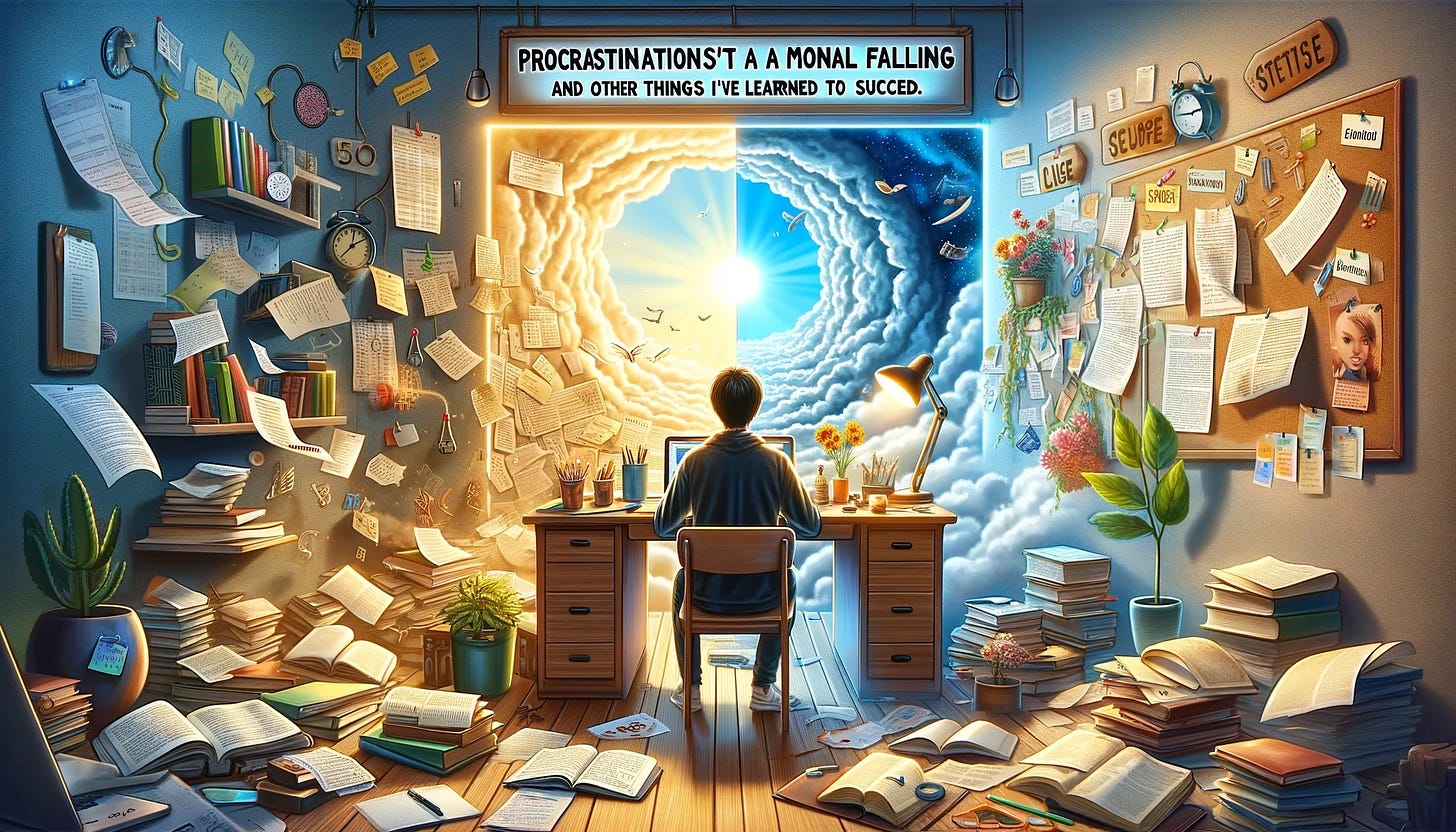Procrastination isn't a moral failing and other things I've learned to succeed
For those of us with ADHD, simply "thinking" can be a herculean effort. Our brains crave escape, making focusing on tasks feel like wrangling a greased pig.
This article dives into the "why" behind some common ADHD challenges and equips you with less conventional strategies to conquer them, transforming you from a procrastination pro into a productivity powerhouse.
Why Your Brain Wants to Bail (and How to Lure it Back)
Imagine your brain as a high-maintenance celebrity. It requires constant stimulation and th…


